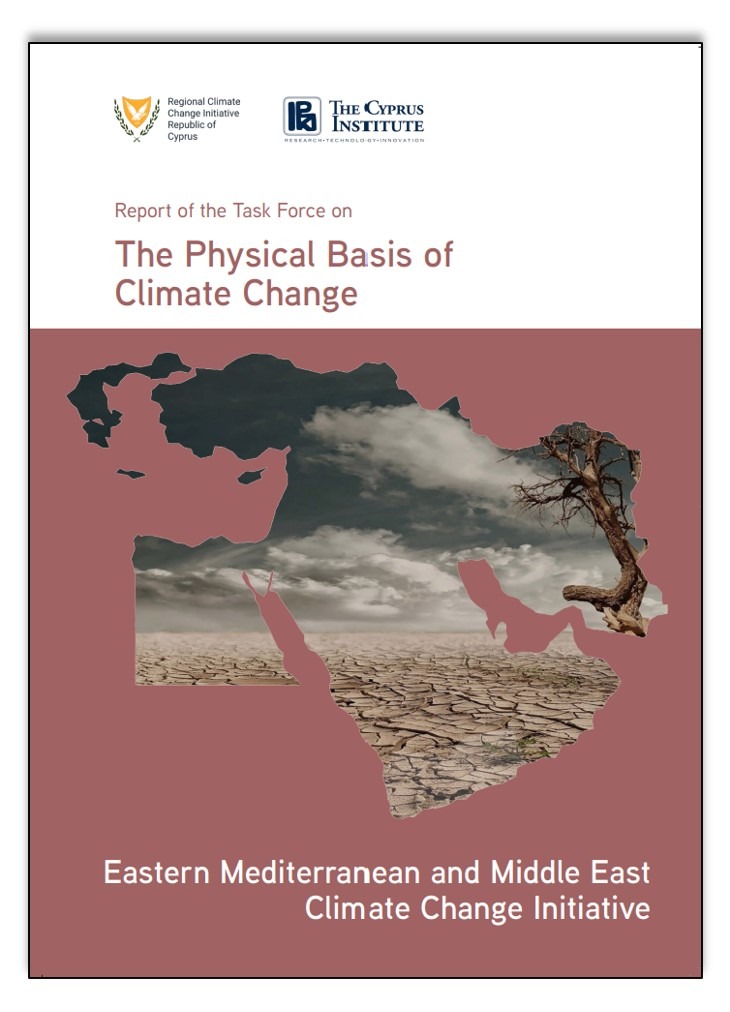
The Physical Basis of Climate Change
Climatic conditions in the EMME region are characterized by remarkable contrasts and gradients, with certain areas displaying some of the highest precipitation levels in Europe, while hot and arid climate prevails in other areas. Measurements and climate models consistently show that the EMME region is becoming drier and hotter and that the intensity and duration of heat extremes will continue to increase in the next decades.
Many observation-based and modelling studies have identified the EMME region as a prominent environmental and climate change hot-spot. During the last half-century, the region has warmed faster than the global mean, especially in the past few decades, while at the same time changes in the hydrological cycle (mainly expressed as precipitation decreases) have become evident.
The considerable changes in environmental and climate conditions expected in the region could imply severe impacts in a variety of sectors and socio-economic activities including the management of water resources and agriculture, human health, energy production, transportation, ecosystems, biodiversity, forest fires and many more. These impacts will likely be exacerbated by additional factors, such as regional population growth and urbanization, which will inevitably increase the demand and competition for natural resources. Since parts of EMME have pronounced social inequalities, the poor are expected to suffer most from climate change impacts, for example from heat extremes and shortage of water resources.
We address the impacts of climate change on the EMME region using a holistic approach covering a wide range of timescales, phenomena and future pathways. In the assessment presented we use a state-of-the-art collection of observational datasets, the latest available ensemble of regional climate projections, as well as analysis and extensive review of the recent scientific literature on the causes and effects of climate change in the EMME region. The work presented complements and updates previous regional and national initiatives in terms of extended observational records, improved climate model information, geographical coverage, types and ranges of future scenarios, etc.
In addition to projected changes of mean climate conditions, we emphasize extreme events (including strong increases in the severity and duration of summer heatwaves, increased nighttime temperatures, droughts, as well as torrential rain events that can trigger flash floods) that can have major societal impacts, both for the region as a whole and for the 17 individual countries. In addition, we discuss specific, related topics and factors that interplay with climate, such as atmospheric pollution and land-use change in the region, including urbanization and forest fires, identify knowledge gaps and scientific challenges and formulate recommendations for regional cooperation towards improved understanding and resilience of the EMME to climate change.
In summary, the aims of the study are: (i) to assess the regional manifestations of global warming in the EMME region by using state-of-the-art climate information from up-to-date observational records and regional climate models, (ii) to provide an extensive literature review of the causes and regional effects of climate change, (iii) to present projections of regional climate change in the 21st century, and (iv) to identify knowledge gaps and scientific challenges and formulate recommendations for regional cooperation towards improved understanding and resilience of the EMME to climate change.
(Click here to download the report in .pdf format)
Climate Change and Weather Extremes in the Eastern Mediterranean and Middle East – Reviews on Geophysics -Vol 60, September 2022
Abstract From the Report of the Task Force on Physical Basis of Climate Change
Many observation-based and modelling studies have identified the Eastern Mediterranean and Middle East (EMME) region as a prominent environmental and climate change hot-spot. Over the past half-century and especially the most recent decades, the region has warmed faster than the global mean. At the same time, changes in the hydrological cycle (mainly through decreasing precipitation) have become more evident. The observed temperature trend, characterised by an increase of about 0.45°C per decade, is projected to continue throughout the 21st century, depending on greenhouse gas emission scenarios. While several initiatives have addressed the impacts of climate change on parts of the EMME or at the national level, here we present an updated assessment, covering a wide range of timescales, phenomena and future pathways. Our assessment is based on an updated analysis of recent observations and regional climate projections and an extensive review of the recent scientific literature on the causes and effects of climate change in the EMME region. In addition to projected changes in mean climate conditions, we call attention to extreme events that could have major societal impacts, across the region as a whole and within its 17 countries. These include the increased severity and duration of summer heatwaves, high night-time temperatures, droughts and dust storms, as well as torrential rain events that can trigger flash floods. Our assessment is complemented by a discussion of atmospheric pollution and land-use change in the region, including urbanization and forest fires. Finally, we identify critical sectors, knowledge gaps and scientific challenges and formulate recommendations for regional cooperation towards improved understanding and greater resilience of the EMME to climate change.

Task Force
Task Force Coordination
Jos Lelieveld, Jean Sciare
Cyprus Institute Liaison Scientist
George Zittis
Task Force Members
Mansour Almazroui, Pinhas Alpert, Philippe Ciais, Wolfgang Cramer, Yara Dahdal, Diana
Francis, Panos Hadjinicolaou, Fares Howari, Amna Jrrar, Dimitris Kaskaoutis, Markku
Kulmala, Xin Lin, Nikos Mihalopoulos, Yinon Rudich, Georgiy Stenchikov, Elena Xoplaki

